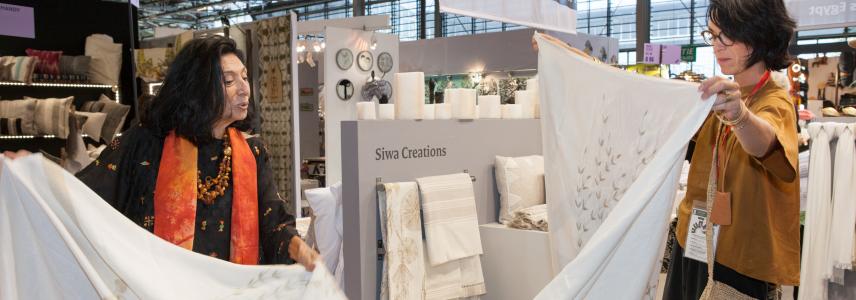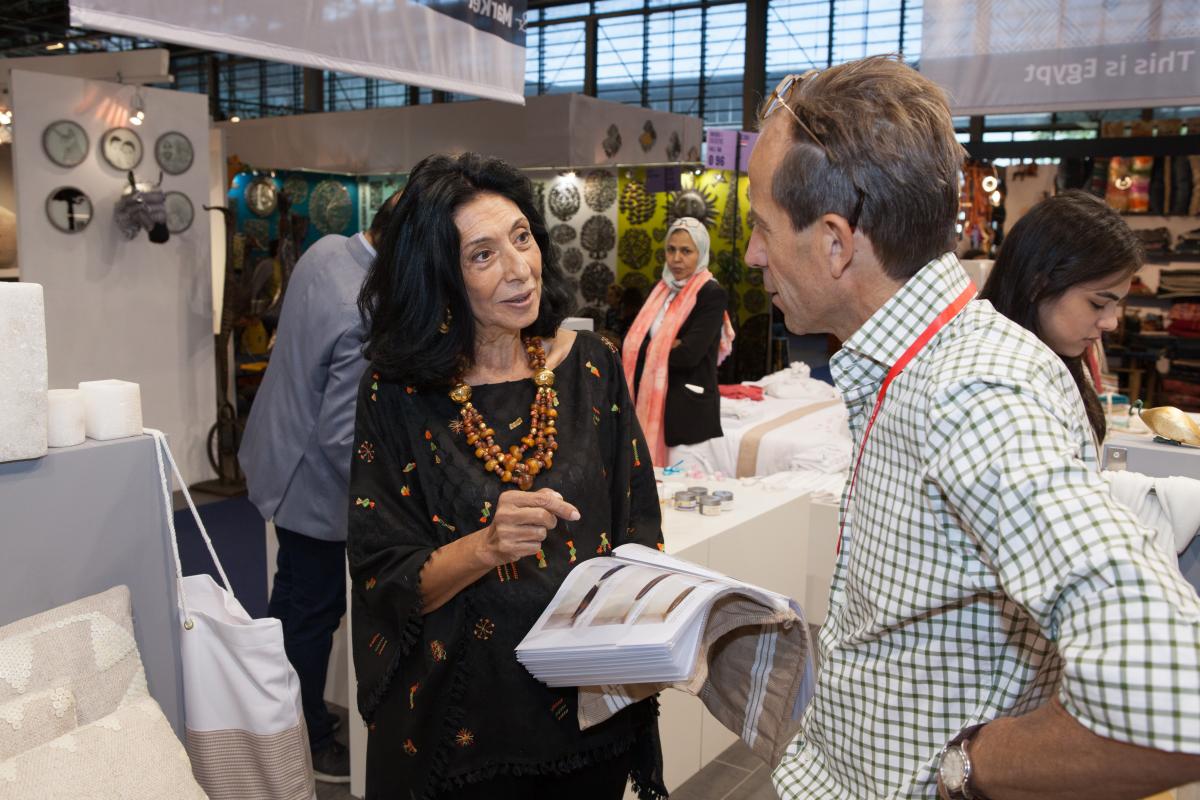Matchmaking empowers women and their community in Egypt

The majority of CBI programs are about creating opportunities and new perspectives for people and businesses all over the world. So, when CBI teamed up with Egyptian textile and weaving artisans Siwa Creations, and founder Leila Neamatalla, it was a match made in heaven. CBI could assist in matchmaking that has helped Siwa to orientate and enter the European high-end home furnishings marketplace. Moreover, export to Europe offers new perspectives for the lives of women and their community in the Siwa oasis.
Limited prospects
Lack of opportunities and perspectives is the reality for the women living in the Siwa oasis in the middle of the desert. Cultural norms restrict the freedom of movement of women outside the household and the economy is 90% based on agriculture. It’s easy to see that prospects for women of all ages in this region are severely limited. Marriage was one of the only options left open to them, with the expectation that they would be married by the age of eighteen.
Growth opportunity
Laila Neamatalla is an Egyptian entrepreneur and creative jeweller and designer. She saw an opportunity to radically improve the lives of these women and their community.At the same time she helps to protect their cultural heritage through sustainable social and economic development.
Cultural heritage
With a population of around 30,000, the Siwa oasis near the Libyan border has a tradition of intricate embroidery spanning centuries. The younger women did not learn this, and the craft was at risk of dying out. In 2001, Neamatalla devised the Women's Artisanship Initiative and paid skilled grandmothers to train young girls in the art of embroidery. Initially, ten older women were employed to train seventy younger women. Within three years, the number of women participating in the project increased to 300.
Entering new markets
However, the 2011 revolution in Egypt created a crisis for the community as tourism and local markets took a hit. “CBI helped us to gain exposure outside of Egypt,” explains Neamatalla. “This occurred in two ways,” she says. “The experience and the simple, elegant way of accessing a market by attending trade shows on the trusted CBI stand was one. The second was advice in design, helping us to evolve our designs to appeal to European tastes. Having access to CBI’s intelligence regarding trends, fashions, colours, etc., was very useful. Also personal matchmaking was a definite success. Facilitating the one-to-one contacts was essential, and they assisted us in connecting with clients and producers, matching demand with supply.”
New perspectives
Nowadays, the women of Siwa can often earn considerably more than a male agricultural worker. Lifestyles have changed for the better, with more girls completing high school before they marry. Some women say they will marry later or perhaps not at all. Being able to appeal to new markets has helped secure the stability of the project and the community. The pressure to marry and become a dependent woman has been lifted, and today the women of Siwa can plan their own lives.
